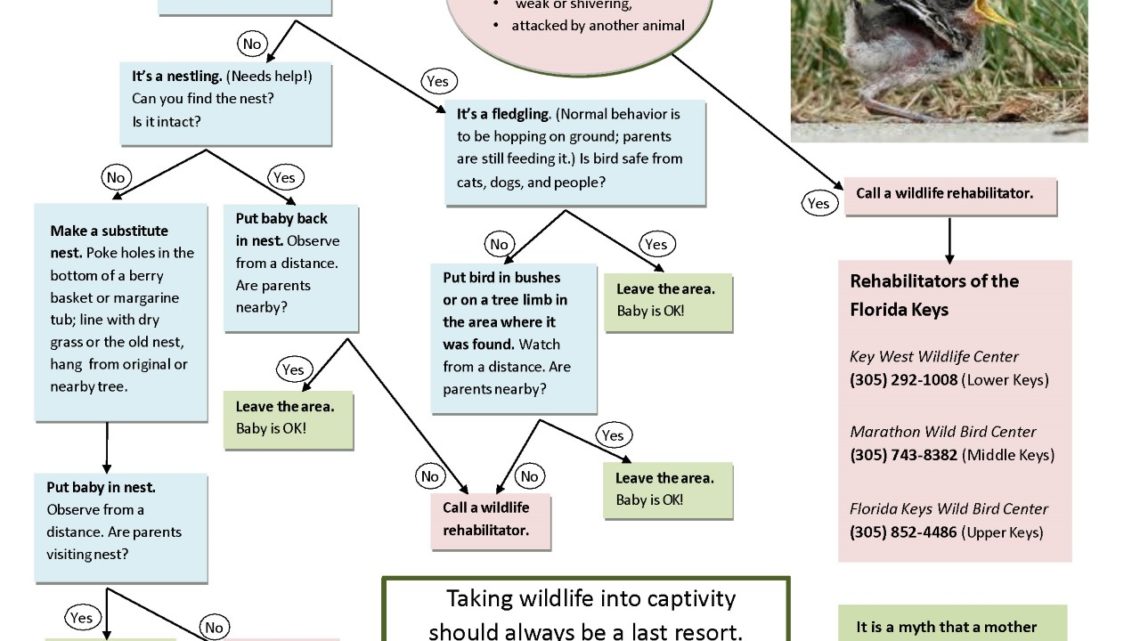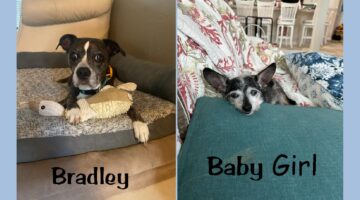Rescue Tails / Parallel universes do exist!
By Cathy Baier, Florida Keys SPCA
While the world we inhabit has been turned upside down, there is a world that coexists alongside ours in which nothing has changed. In the natural world, life has continued to tick along as always, without concern for a pandemic. There are no borders to be protected, no quarantines to be maintained, and no jobs not being performed. In this parallel universe, wild birds are still migrating freely across the globe to their summer homes, nesting, breeding, and raising their young. And all this is happening in our midst, without interruption as it does every spring.
Right now, baby bird season is in full swing here in the Keys and this becomes a very busy time for the wild bird rehabilitators up and down our island chain. Typically, phones are ringing off the hooks as people find baby birds. According to our friends at Key West Wildlife Center, they are seeing everything from tiny nestlings who still belong in the nest to fledglings who have left the nest and are in the process of learning to be on their own. This is a perilous time for these little ones, and there is much we can do to help them survive.
Not every baby bird found is in need of rescuing, and so many of them end up in wildlife facilities don’t need to be there. In fact, sometimes the worst thing we can do IS rescue a baby bird! It all depends on both the situation and the age of the baby. So how do we decide if our help is needed?
- A baby bird who is not hopping around and is not fully feathered belongs in the nest. If you find a little one like this, try to locate the nest and, if possible, return the baby. (It is a myth that a mother bird will not reclaim her young if the baby has been touched.) Can’t find the nest? Create a makeshift one, using a flower pot or basket, making sure it has drainage in case it rains. Leaves, grass, or moss can be used as nesting material. Avoid paper or cotton. Secure it safely in a tree as near to the original nest site as possible, out of direct sun, and wait to see if the mother eventually returns.
- If you find a baby who is feathered and hopping around, this is a fledgling who has recently left the nest and is learning to fly. The mother bird supports the baby by continuing to provide food during this learning phase. This is probably the most dangerous time for these little guys. They are especially vulnerable to cats and dogs at this stage so keep an eye out for babies in your yard and when out walking. The best way to help these fledglings is to leave them alone if they are in a safe place and, at most, put them under a bush where they will not be as visible and vulnerable. If possible, keep checking for visits from the parent bird. She may be out foraging for food, so it can take time (i.e. hours) for her to return.
- If the bird is injured or you are certain there is no parent, call your local rehabilitator. (Contact numbers on the chart)
If you are tempted to try to raise the baby yourself, keep in mind it is against the law to keep a wild bird without the proper state and federal permits. Raising a wild baby bird requires many hours of time. Some nestlings require feeding as often as every 20 minutes. It also requires knowledge of proper care and nutrition since different species require different diets. An improperly balanced diet, fed even for a short time, can cause irreversible damage to a rapidly developing bird.
Parent birds are much better equipped to raise their young than we are, so the kindest thing is to give them every chance to do so. But when that is not possible, your wise intervention can make the difference if these little ones live or die. You are encouraged to share the flow chart and information with friends and family, and remember to support your local wildlife rehabilitators who have the knowledge to step in when the need in there. They provide an incredibly valuable service to both the communities and the animals they serve.
[livemarket market_name="KONK Life LiveMarket" limit=3 category=“” show_signup=0 show_more=0]





No Comment